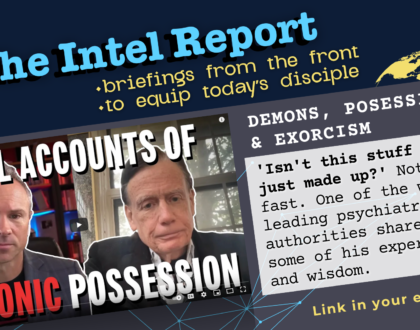Nomination and Election of New Elders at Westminster (Autumn 2021)

by Westminster
As announced on October 3, 2021 by Pastor Ruttan, we will be electing three new elders to replace those who will be ending their current terms at the end of December 2021.
This post/document is to inform you about eldership and the process.
What is an “elder”?
The word elder is from the Bible and refers to someone who is in a position of responsibility and authority in a congregation. Presbyterian Churches are led by elders. In fact, the world “Presbyterian” means governed by elders or “of elders.” It is a biblical model for how we organize and oversee churches. Contrary to what is implied in expressions like “respect your elders,” in the church it doesn’t refer to one’s age.
Elders meet monthly (in person or over Zoom) to do their prayerful work of the oversight of the church.
There are two kinds of elders. One is a ‘teaching elder’ (who is the pastor). The other is a ‘ruling elder’. This is kind we will be discussing here.
We already have elders, so why are we electing more?
At Westminster we have a pastor who is a teaching elder and 9 elders who meet to oversee the direction, mission and well-being of the congregation.
Every two years, one third of our elders have their 6-year term expire; plus, other elders may have retired. Those elders whose terms expire may choose to retire from active eldership or may decide to put their names forward to be re-elected to a new term. In 2021 we will be electing three new elders.
The elders whose terms officially expire at the end of 2021 are Cathy Clark, Colin Leonard and Wayne Hope (who retired early in November 2020 due to some health concerns).
The other current active elders, in addition to Pastor Ruttan as the teaching elder, are Mary Colvin, Guy Gagnon, Aaron Harris, Steve Sainsbury, and Tom Walsh.
What is the Process for electing new Elders?
1. Who is eligible to be nominated?
All “professing members” of the congregation are eligible to be nominated. “Professing members” are those who have gone to membership gatherings with Rev. Ruttan or one of his predecessors and have professed their Christian faith in front of the congregation or those who have officially transferred their membership certificate from another congregation.
If you are unsure whether or not you are a professing member, please contact to Rev. Ruttan.
At the end of this post/document there is also a list of ‘Character Traits and Responsibilities’ for eldership.
2. When is the nomination period?
The nomination period extends from October 3 to October 17.
3. How can I nominate someone?
Nomination forms can be submitted in two ways.
In-person. They can be submitted at the church office to Mary Colvin or Susie Sellers in a sealed box during office hours (Tue-Fri, 9am-noon) or on Sunday mornings. You can get one at the office itself, or download a pdf version to print here: nomination ballot 2021 10 – to print
Email. Alternatively, if you are not able (or comfortable) to come to the church in person, nominations can be made by email (on behalf of two members, including yourself; see the next point), by email to Rev. Ruttan (matthew [at] westminsterpc.ca) and elder Cathy Clark as Acting Clerk of Session (cathy [at] westminsterpc.ca). In your email ensure (a) your name is listed, (b) the name of the person who is seconding your nomination is listed (they must be consenting and also a professing member of the congregation), and (c) the date of your submission.
4. Who can fill out a nomination ballot and nominate someone?
Only professing members may nominate someone. (For a definition of “Professing Member” see above.)
5. Can I nominate more than one person to be an elder, and do I need to get their permission first?
You may nominate more than one person and you do not need to get their permission first. They will be asked if they would like their names to stand or not at a later point in the process.
6. Why can only professing members nominate someone?
Professing members have met with Rev. Ruttan or one of his predecessors through the membership or transfer process, have learned about Westminster and are following Christ, have made a commitment to Westminster as their church home, and professed their faith in front of the congregation. Elders are elected from the congregation by the congregation. This is one of the privileges of membership.
7. How does the nomination process work?
A nominee would need to be nominated by two different professing members or by the Nominating Committee of Session.
They would need to agree to the ‘Character Traits and responsibilities’ of church elders.
They would need to be a suitable nominee (as per the required Character Traits and Responsibilities)
They would need to agree to let their name stand after a conversation with a member of the Nominating Committee.
8. How is the election carried out?
When nominees are established, their names will be published on the church website as well as on handouts at the church building. This would accompany their picture and a bit of information about them.
Then there will be an election on November 21, 2021. The three nominees with the most votes would be selected. They would be inducted and/or ordained early in January 2021 during a Sunday morning worship service. They would then begin their term of leadership for 6 years.
Since we are in a pandemic situation and not all people can be present on one day, we are exploring options about how to make this happen in a fair and effective way.
9. What would have to happen for me to become an elder if someone were to nominate me?
First, it is important to remember that in this process we are trying to listen for the will of God. There are usually two elements in one’s “call” to eldership: an internal prompting from God and then the public confirmation of that call by the church. When those two things are present, we can be confident that you are being called to eldership.
Here is what would have to happen: You would have to be a professing member. Two professing members would have to nominate you. You would need to be in agreement with the character traits and responsibilities of an elder as described below. Session would need to meet and discuss your candidacy, ensuring you are available for regular meetings and able to fulfill the responsibilities of eldership. You would have to give permission to the Nominating Committee for your name to be on the ballot for the November 21 election. You would need to receive enough votes during the election (the top 3 being selected). You would need to agree to the ordination vow questions (listed at the end of this post/document).
10. Who do I speak to if I have questions?
Any questions regarding the election process or what an elder’s responsibilities will be should be directed to Rev. Ruttan or our Acting Clerk of Session, Cathy Clark.
Character Traits & Responsibilities of Elders at Westminster
Our elders will be strong Christian leaders who:
- Have a personal relationship with Jesus Christ as Lord and Saviour (see membership questions in these footnotes[i] or in the Book of Forms, section 132) that includes daily prayer and Bible reading
- Be able to articulate their faith
- Are baptised and are a member of the congregation (Book of Forms, section 106.1)
- Are “an example to [other] believers in speech, conduct, love, faith and purity” (1 Timothy 4:12)
- Have sound judgment and are of upright character (Book of Forms, 132)
- Are knowledgeable (or are prepared to learn) about the government of the church (Book of Forms, 132)
- Have gifts for spiritual leadership (see 1 Corinthians 12)
- Are in regular attendance in worship (Book of Forms, section 132) (Note: during the Covid-19 pandemic, ‘regular attendance’ would also include online attendance.)
- Are prepared to be an active participant in the ministry of the church
- Are prepared to attend the regular and emergent (i.e. special) elders meeting
- Assume a key leadership role in at least one other ministry of the church
- Pass a Volunteer Sector Records Check screening
- Agree to and sign the Covenant of Care as per the denomination’s Leading with Care policy
- Are able to adhere to these ordination vows: Do you believe in God the Father, made known in His Son Jesus Christ our Lord, to whom the Holy Spirit witnesses in the Scriptures of the Old and New Testaments? Do you accept the subordinate standards [see note below] of this Church, and do you promise to be guided thereby in fostering Christian belief, worship and service among the people? Do you accept the government of this Church by sessions, presbyteries, synods and general assemblies, and do you promise to share in and submit yourself to all lawful oversight therein, and to follow no divisive course but to seek the peace and unity of Christ among your people and throughout the Holy Catholic Church? In accepting the office of Elder, do you promise to perform your duties in the grace of the Lord Jesus Christ, striving to build up His Church and to strengthen her mission in the world?
Notes:
[i] Membership Questions (when someone joins the church): 1. Do you desire, in dependence on the Holy Spirit, to mature as a Christian in the church, to seek the guidance of Christ as you listen for his Word, to celebrate his death and life at the table he provides, and to engage in his mission to the world? 2. Do you affirm the historic Christian faith as it has been handed on to us in the words of the Apostles’ Creed?
[ii] The “subordinate standards” are: The Westminster Confession of Faith, Living Faith, and The Declaration of Faith Concerning Church and Nation. They can be found by clicking the links below or in the binder marked ‘Subordinate Standards’ in the church library. These documents lay out the Reformed/Presbyterian understanding of the faith and include items such as the authority of Scripture, the Trinity, sin, Christ as the only mediator between God and humanity, salvation, worship, sacraments, the return of Christ and final judgment, the Lordship of Jesus, the nature of the Church, the Christian family, and mission.
SUBORDINATE STANDARDS:
a. The Westminster Confession of Faith: gao_westminster_confession_of_faith
b. Living Faith: Living-Faith
c. Declaration of Faith Concerning Church and Nation: Declaration of Faith concerning Church and Nation (with Biblical references)
Recommended Posts

10 Unpopular things Jesus said
July 23, 2024

The Intel Report No.2 – Demons, Possession & Exorcism
July 17, 2024
